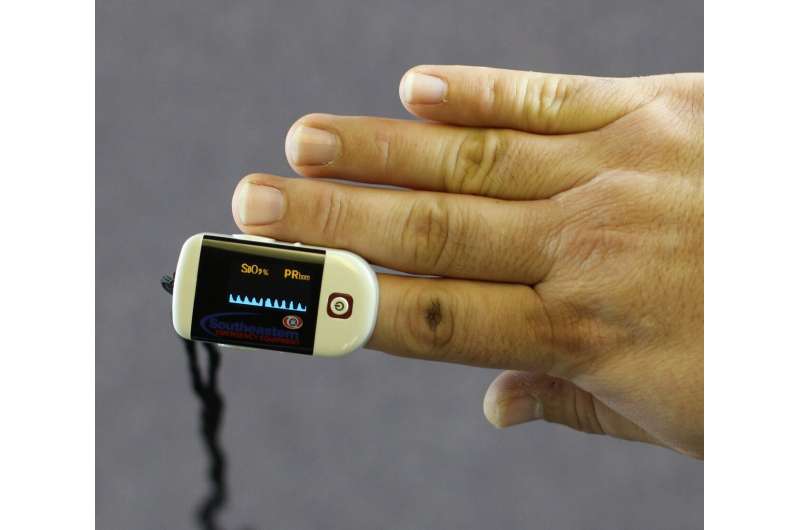Credit: Pixabay/CC0 Public Domain
Researchers from Children's Hospital of Philadelphia (CHOP) recently found that a device used to measure oxygen levels might be overestimating those levels in children of different races, which could lead to inaccurate readings. The findings were published online in JAMA Pediatrics.
Pulse oximetry is a noninvasive device used to measure oxygen levels in the blood. Prior studies in adults indicated that darker skin tones appear to make the measurement less accurate. Scientists wanted to understand if the same phenomenon might be seen in children.
"Children have different skin characteristics than adults, which may affect pulse oximetry, so we did not want to simply extrapolate adult findings and assume the same was true in our pediatric patients," said the study's first author Halley Ruppel, Ph.D., RN, a research assistant professor at CHOP and Penn Nursing.
To study the relationship between true blood oxygen saturation and the readings captured by pulse oximetry, the researchers used retrospective electronic health record data from a pediatric cardiac catheterization laboratory where pulse oximetry is captured in 1-minute intervals in electronic health records and is able to be linked to arterial blood gasses processed at the same time.
The study included data on 774 patients, including 201 Black or African American patients and 573 white patients. The study found that 12% of Black patients with true low oxygen levels had a "normal" pulse oximetry measurement, compared with 4% in the white population.
Although the results are preliminary, the findings are consistent with other studies and suggest that darker skin tones might lead to more discrepancies among pulse oximeter readings in children. Further studies are needed to prospectively evaluate the association between skin color and pulse oximeter accuracy in children, rather than relying on race documented in the electronic health record.
More information: Halley Ruppel et al, Evaluating the Accuracy of Pulse Oximetry in Children According to Race, JAMA Pediatrics (2023). DOI: 10.1001/jamapediatrics.2023.0071
Journal information: JAMA Pediatrics
Provided by Children's Hospital of Philadelphia






















